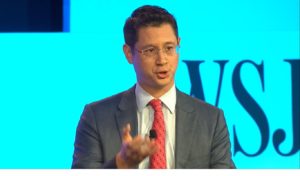 Huawei HQ in Shenzhen via Wikipedia
Huawei HQ in Shenzhen via WikipediaChina's largest IT manufacturer and developer
Huawei from
Shenzhen has gone through an really amazing make-over. Earlier this week I was asked by a Dutch broadcasting station if I could collect some information about this Chinese company. The Dutch minister of Economic Affairs had organized a trade mission with Huawei earlier in 2011, but at the time hardly anybody seemed interested. Now, my friends at the Dutch VPRO hoped to get some proof that this company was a PLA-front trying to collect secrets in the West, they suggested to me.
I replied right away that there competitor Cisco is most likely a
CIA-front and was probably easier to prove than the Huawei/PLA connection. When you are in the IT-business, you need enough of your own expertise to make sure partners, whether American, Chinese or Dutch, do not run away with what you consider to be business secrets. Not doing business with anybody is the only safe way to prevent espionage.
It might still take another month before I can discuss any plans (Europe takes holidays very serious and traditional media are largely out of business from March to September), and I might have spoiled it by denouncing the PLA/espionage angle to start with. But it was reason enough to play around on the Internet a bit, to check whether my own view on Huawei was still acurate.
Four, five years ago, Huawei was mostly known from its ventures in China and developing countries and was making its first steps into the developed markets. That was initially not a huge success. Media described how Huawei's military like organization structure drove potential foreign employees crazy. A string of media reports made fun of those efforts by Huawei at the time, and I got those stories also confirmed by business people who tried to help the company setting up shop in Europe.
But a short tour on the internet made clear that my view on Huawei could also need some adjustment. While I always kept in mind that the negative coverage half a decade ago could well by organized by PR-spin doctors of Huawei's competitors, now the reversed seems to happen. I'm no expert on their technical achievements, I do know when I see a professional spin. Included you find a few very sleek video's from their US operation, where you find former managers from Nortel and BT, singing the gospel of Huawei.
In these times of crisis, it might be easier for Huawei to pick up qualified managers, but both their stories do their bit: I found them rather convincing, even when you realize this is corporate propaganda. In the US, Huawei is still seen as the Chinese enemy, destroying US jobs and jeopardizing its security. And when you look at both video's, you hardly realize that Huawei is actually Chinese, their background is downplayed very much, although the huge China market might be one of the reasons for its success.
I also realized why the Dutch government changed its position towards Huawei from rather reluctant (following the US lead) to an enthusiastic supporter. The West-European headquarters are based in Amsterdam and has already 350 employees. When you look at the enthusiastic stories from
Silicon Valley, you can see why drooling Dutch politicians made their kowtows in Shenzhen.
Not only in terms of employment Huawei is interesting, potentially it can help to boost also knowledge centers in Europe, if it only had a few comparable with Silicon Valley. The second part, might for a large degree be a political illusion, as long as scientific innovation has no European legs and is even divided over different regions in a small country like the Netherlands.
But most certainly, here is news being made, although in a different way traditional media might think.
